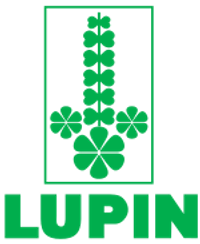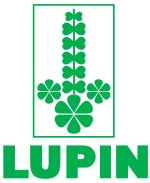
Lupin Ltd
NSE:LUPIN


| US |

|
Johnson & Johnson
NYSE:JNJ
|
Pharmaceuticals
|
| US |

|
Berkshire Hathaway Inc
NYSE:BRK.A
|
Financial Services
|
| US |

|
Bank of America Corp
NYSE:BAC
|
Banking
|
| US |

|
Mastercard Inc
NYSE:MA
|
Technology
|
| US |

|
UnitedHealth Group Inc
NYSE:UNH
|
Health Care
|
| US |

|
Exxon Mobil Corp
NYSE:XOM
|
Energy
|
| US |

|
Pfizer Inc
NYSE:PFE
|
Pharmaceuticals
|
| US |

|
Palantir Technologies Inc
NYSE:PLTR
|
Technology
|
| US |

|
Nike Inc
NYSE:NKE
|
Textiles, Apparel & Luxury Goods
|
| US |

|
Visa Inc
NYSE:V
|
Technology
|
| CN |

|
Alibaba Group Holding Ltd
NYSE:BABA
|
Retail
|
| US |

|
3M Co
NYSE:MMM
|
Industrial Conglomerates
|
| US |

|
JPMorgan Chase & Co
NYSE:JPM
|
Banking
|
| US |

|
Coca-Cola Co
NYSE:KO
|
Beverages
|
| US |

|
Walmart Inc
NYSE:WMT
|
Retail
|
| US |

|
Verizon Communications Inc
NYSE:VZ
|
Telecommunication
|
Utilize notes to systematically review your investment decisions. By reflecting on past outcomes, you can discern effective strategies and identify those that underperformed. This continuous feedback loop enables you to adapt and refine your approach, optimizing for future success.
Each note serves as a learning point, offering insights into your decision-making processes. Over time, you'll accumulate a personalized database of knowledge, enhancing your ability to make informed decisions quickly and effectively.
With a comprehensive record of your investment history at your fingertips, you can compare current opportunities against past experiences. This not only bolsters your confidence but also ensures that each decision is grounded in a well-documented rationale.
Do you really want to delete this note?
This action cannot be undone.

| 52 Week Range |
1 282.65
2 290.2
|
| Price Target |
|
We'll email you a reminder when the closing price reaches INR.
Choose the stock you wish to monitor with a price alert.

|
Johnson & Johnson
NYSE:JNJ
|
US |

|
Berkshire Hathaway Inc
NYSE:BRK.A
|
US |

|
Bank of America Corp
NYSE:BAC
|
US |

|
Mastercard Inc
NYSE:MA
|
US |

|
UnitedHealth Group Inc
NYSE:UNH
|
US |

|
Exxon Mobil Corp
NYSE:XOM
|
US |

|
Pfizer Inc
NYSE:PFE
|
US |

|
Palantir Technologies Inc
NYSE:PLTR
|
US |

|
Nike Inc
NYSE:NKE
|
US |

|
Visa Inc
NYSE:V
|
US |

|
Alibaba Group Holding Ltd
NYSE:BABA
|
CN |

|
3M Co
NYSE:MMM
|
US |

|
JPMorgan Chase & Co
NYSE:JPM
|
US |

|
Coca-Cola Co
NYSE:KO
|
US |

|
Walmart Inc
NYSE:WMT
|
US |

|
Verizon Communications Inc
NYSE:VZ
|
US |
This alert will be permanently deleted.
 Lupin Ltd
Lupin Ltd
Lupin Ltd
Investor Relations
In the bustling landscape of the global pharmaceutical industry, Lupin Ltd. stands as a testament to the transformative power of innovation and strategic foresight. Founded in 1968 by Dr. Desh Bandhu Gupta, Lupin embarked on its journey with a clear vision: to deliver high-quality drugs at affordable prices. Over the years, it has adeptly navigated the complex world of pharmaceuticals to become a formidable player in the generics market. Its success is built on a robust portfolio that includes a diverse range of generic and branded formulations across many therapeutic segments such as cardiovascular, diabetology, asthma management, and anti-tuberculosis. The company prioritizes intensive research and development, paving the way for both the introduction of new generics and the development of advanced drug delivery systems. Such focus ensures Lupin maintains a competitive edge in both established markets like the United States and emerging markets across Asia and Africa.
The company’s financial engine is powered largely by its extensive manufacturing and distribution capabilities, which are strategically positioned across the globe to maximize efficiency and meet demand. With state-of-the-art facilities in India supplemented by strategic acquisitions and partnerships overseas, Lupin produces a wide array of active pharmaceutical ingredients (APIs) and finished dosages, allowing it to capture value across different stages of the drug supply chain. This vertically integrated model not only enhances profit margins but also provides the agility to respond quickly to market shifts. Furthermore, Lupin's strategic emphasis on biosimilars and specialty drugs reinforces its commitment to innovation, unlocking new revenue streams amid growing global healthcare demands. As Lupin continues to expand its footprint, it remains anchored in its mission to improve healthcare outcomes, embodying a legacy where profitability harmoniously aligns with purpose.

In the bustling landscape of the global pharmaceutical industry, Lupin Ltd. stands as a testament to the transformative power of innovation and strategic foresight. Founded in 1968 by Dr. Desh Bandhu Gupta, Lupin embarked on its journey with a clear vision: to deliver high-quality drugs at affordable prices. Over the years, it has adeptly navigated the complex world of pharmaceuticals to become a formidable player in the generics market. Its success is built on a robust portfolio that includes a diverse range of generic and branded formulations across many therapeutic segments such as cardiovascular, diabetology, asthma management, and anti-tuberculosis. The company prioritizes intensive research and development, paving the way for both the introduction of new generics and the development of advanced drug delivery systems. Such focus ensures Lupin maintains a competitive edge in both established markets like the United States and emerging markets across Asia and Africa.
The company’s financial engine is powered largely by its extensive manufacturing and distribution capabilities, which are strategically positioned across the globe to maximize efficiency and meet demand. With state-of-the-art facilities in India supplemented by strategic acquisitions and partnerships overseas, Lupin produces a wide array of active pharmaceutical ingredients (APIs) and finished dosages, allowing it to capture value across different stages of the drug supply chain. This vertically integrated model not only enhances profit margins but also provides the agility to respond quickly to market shifts. Furthermore, Lupin's strategic emphasis on biosimilars and specialty drugs reinforces its commitment to innovation, unlocking new revenue streams amid growing global healthcare demands. As Lupin continues to expand its footprint, it remains anchored in its mission to improve healthcare outcomes, embodying a legacy where profitability harmoniously aligns with purpose.





























 You don't have any saved screeners yet
You don't have any saved screeners yet
